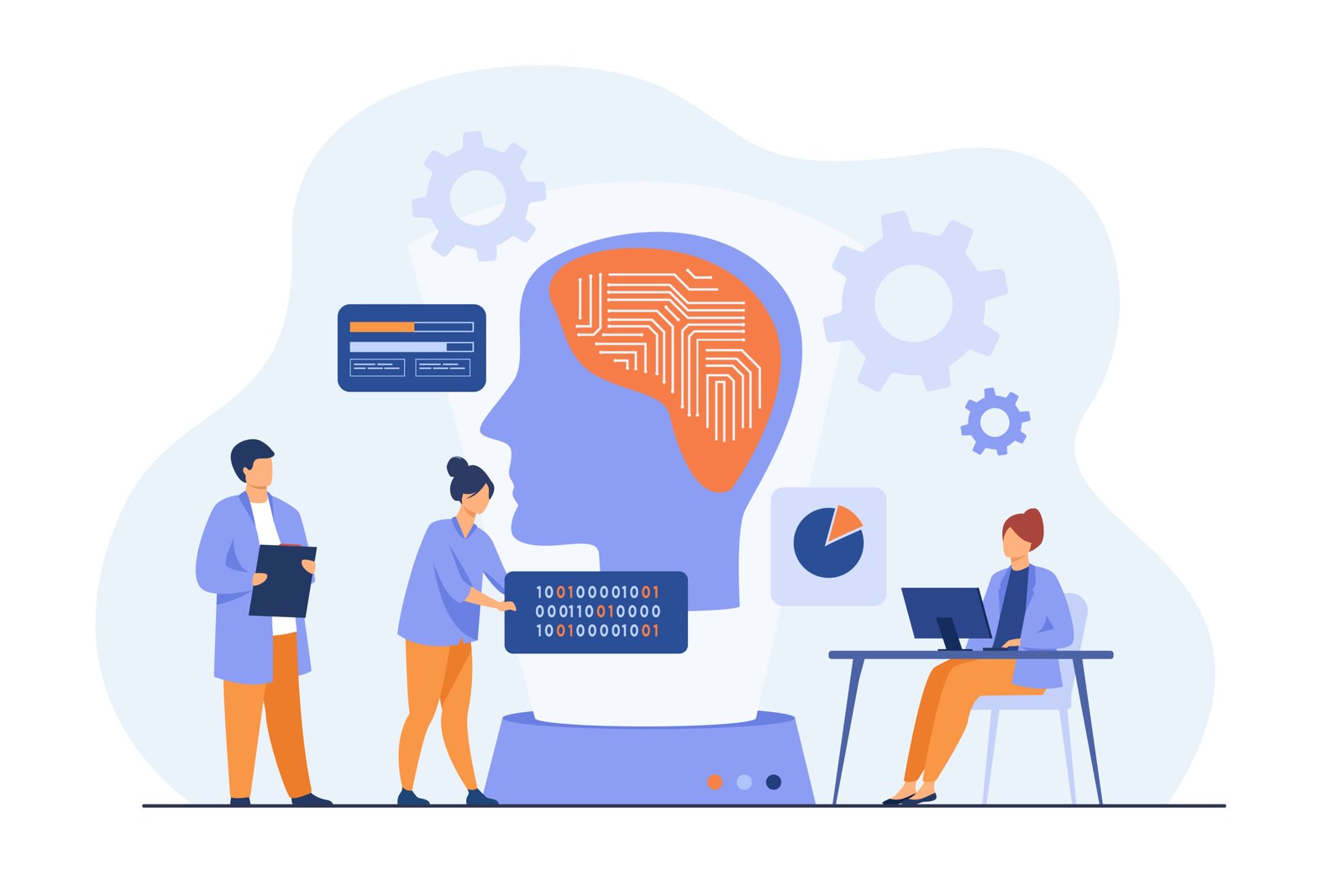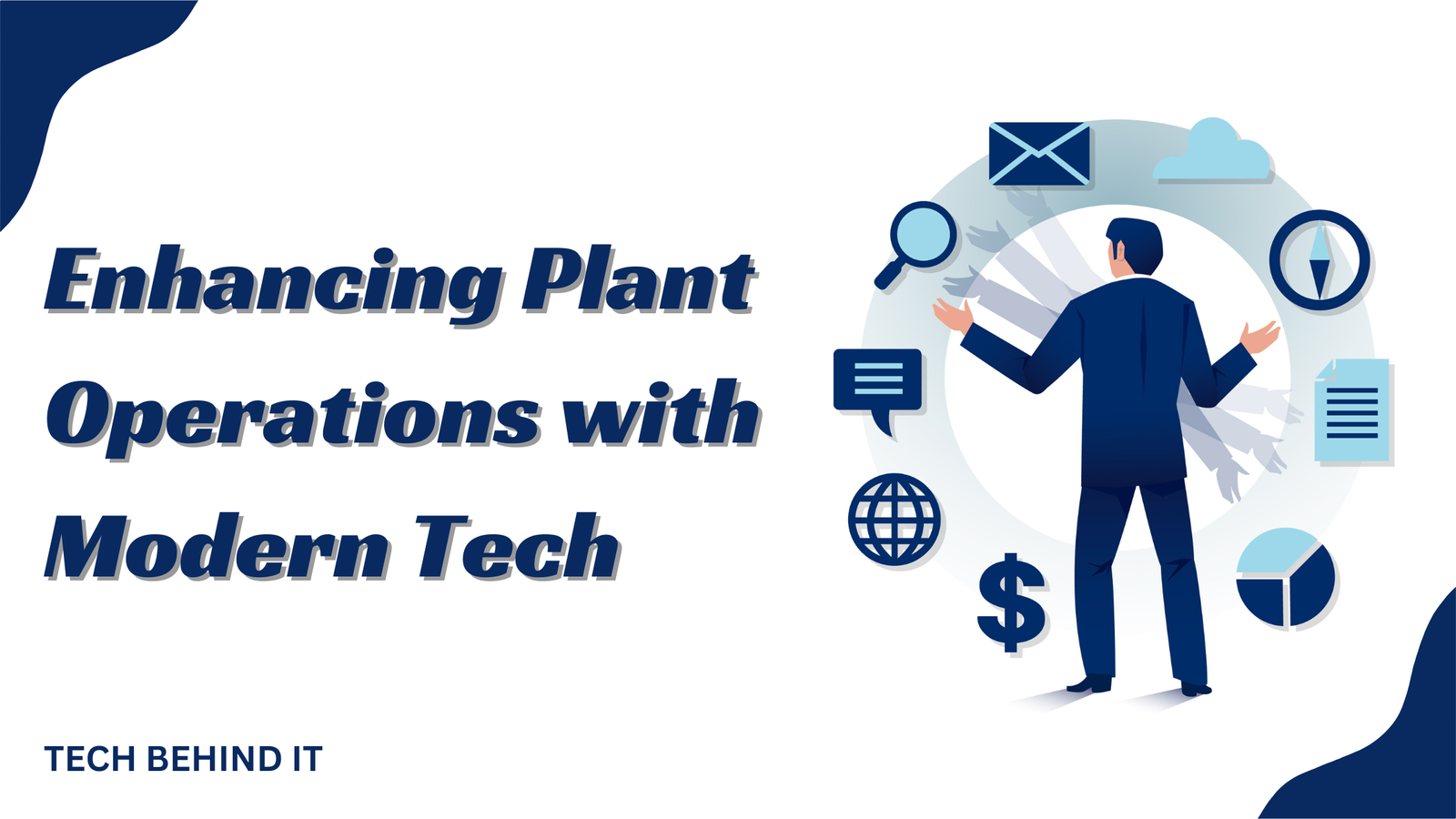Enhancing Plant Operations with Modern Tech for Optimal Efficiency
- 1 1. Embracing Automation Technologies
- 2 2. Leveraging IoT and Smart Sensors
- 3 3. Strengthening Cybersecurity Measures
- 4 4. Utilizing Advanced Analytics
- 5 5. Integrating Digital Twin Technology
- 6 6. Adopting Augmented Reality (AR) and Virtual Reality (VR)
- 7 7. Harnessing Cloud Computing and Edge Computing
- 8 8. Enhancing Operational Efficiency with AI and Machine Learning
- 9 Conclusion
Plant operations are undergoing significant transformations in an era of rapid technological advancements. Modern tech solutions are optional add-ons and essential for achieving optimal efficiency and competitiveness in the industrial landscape. Integrating these technologies into your operations can streamline processes, boost productivity, and foster innovation. This article explores how various technological advancements are revolutionizing plant operations and offers a comprehensive guide on leveraging these innovations to enhance your plant’s efficiency.
1. Embracing Automation Technologies

The rise of automation technologies is a game-changer for plant operations. By incorporating automated systems, you can significantly reduce manual labor and minimize human error. This results in faster production cycles and enhanced quality control. In process industries, adopting automation can lead to substantial cost savings and improved safety standards.
Key Benefits of Automation:
- Reduced Operational Costs: Automation can lead to significant cost savings by reducing labour costs and errors and reducing waste and rework.
- Enhanced Safety Standards: Automated systems can perform hazardous tasks, minimizing the risk to human workers and ensuring compliance with safety regulations.
- Consistent Product Quality: Automated systems ensure consistent product quality by performing repetitive tasks with high precision, crucial for industries such as pharmaceuticals and food production.
- Real-time Monitoring: Automation allows for real-time monitoring and data analysis, enabling swift decision-making and prompt issue resolution.
Implementation Strategies:
- Invest in Robotics and AI: Robotics can handle complex and repetitive tasks precisely, while AI-driven systems can optimize workflows and predict potential issues.
- Develop a Scalable Automation Plan: Start with automating critical processes and gradually expand to other areas, ensuring that the automation infrastructure can scale with your operations.
2. Leveraging IoT and Smart Sensors
The Internet of Things (IoT) and smart sensors are pivotal in modernizing plant operations. They provide valuable insights into equipment performance, environmental conditions, and operational efficiency.
Benefits of IoT and Smart Sensors:
- Predictive Maintenance: IoT devices monitor machinery health, enabling predictive maintenance. This reduces downtime and extends equipment lifespan by addressing potential issues before they lead to failures.
- Energy Optimization: Smart sensors provide real-time data on energy consumption, allowing for better resource management and cost savings.
- Enhanced Resource Management: IoT devices offer insights into operational parameters, facilitating efficient use of resources and reducing wastage.
Implementation Strategies:
- Integrate IoT with Existing Systems: Ensure IoT devices seamlessly integrate with your current infrastructure, providing comprehensive visibility into your operations.
- Utilize Data Analytics: Leverage data from IoT devices to perform advanced analytics, enabling you to optimize processes and enhance decision-making.
3. Strengthening Cybersecurity Measures

As plant operations become increasingly digitized, the importance of robust cybersecurity measures cannot be overstated. Protecting your digital infrastructure from cyber threats is critical to maintaining operational integrity and preventing data breaches.
Cybersecurity Best Practices:
- Regular Software Updates: Ensure all software systems are up-to-date with the latest security patches to mitigate vulnerabilities.
- Robust Authentication Protocols: Implement multi-factor authentication (MFA) to enhance access control and prevent unauthorized access.
- Security Audits: Conduct regular security audits and penetration testing to identify and address potential vulnerabilities in your network.
Employee Training:
- Cybersecurity Awareness: Educate your staff on cybersecurity best practices, including recognizing phishing attempts and the importance of password security.
- Role-based Access Control (RBAC): Implement RBAC systems to ensure employees have access only to the information necessary for their roles, minimizing the risk of internal threats.
4. Utilizing Advanced Analytics
Advanced analytics tools provide deeper insights into plant operations by analyzing large volumes of data to identify trends and patterns. This empowers organizations to optimize processes, enhance decision-making, and improve efficiency.
Applications of Advanced Analytics:
- Predictive Maintenance: Utilize predictive analytics to forecast equipment failures, allowing for proactive maintenance and reducing unexpected downtime.
- Supply Chain Optimization: Advanced analytics can predict demand fluctuations, optimize inventory levels, and enhance supply chain management.
- Process Optimization: Analyze production data to identify bottlenecks and inefficiencies, enabling you to streamline processes and enhance productivity.
Implementation Strategies:
- Invest in Data Infrastructure: Ensure that your data infrastructure can handle large volumes of data and support advanced analytics tools.
- Develop a Data-driven Culture: Foster a culture that encourages data-driven decision-making, ensuring that insights gained from analytics are effectively utilized in operational strategies.
5. Integrating Digital Twin Technology
Digital twins are virtual replicas of physical assets, processes, or systems. They allow for real-time simulation and analysis, providing valuable insights into plant operations.
Benefits of Digital Twins:
- Real-time Monitoring: Digital twins provide real-time monitoring and simulation of physical assets, enabling accurate prediction of performance and potential issues.
- Enhanced Decision-making: By simulating different scenarios, digital twins allow for informed decision-making and optimized operational strategies.
- Improved Asset Management: Digital twins facilitate effective asset management by providing insights into equipment performance and maintenance needs.
Implementation Strategies:
- Start with Key Assets: Begin by developing digital twins for critical assets and gradually expand to other areas.
- Integrate with IoT and Analytics: Ensure digital twins are integrated with IoT devices and analytics tools to provide comprehensive insights into plant operations.
6. Adopting Augmented Reality (AR) and Virtual Reality (VR)

AR and VR technologies are revolutionizing plant operations by enhancing training, maintenance, and operational efficiency.
Applications of AR and VR:
- Enhanced Training: AR and VR can be used for immersive training experiences, allowing employees to practice complex procedures in a simulated environment.
- Maintenance Support: AR can provide real-time guidance for maintenance tasks, reducing the time and effort required for repairs.
- Operational Efficiency: VR can be used to simulate plant operations, enabling the identification of potential inefficiencies and the optimization of processes.
Implementation Strategies:
- Develop AR/VR Training Programs: Create AR and VR training programs for employees to enhance their skills and improve operational efficiency.
- Integrate with Maintenance Systems: Utilize AR for maintenance support with existing maintenance systems to provide real-time guidance and support.
7. Harnessing Cloud Computing and Edge Computing
Cloud computing and edge computing are transforming plant operations by providing scalable and flexible data storage and processing solutions.
Benefits of Cloud Computing:
- Scalability: Cloud computing offers scalable data storage and processing solutions, allowing you to handle large volumes of data efficiently.
- Cost-efficiency: Utilizing cloud services can reduce the need for on-premises infrastructure, leading to cost savings.
- Remote Access: Cloud computing enables remote access to data and applications, facilitating collaboration and flexibility.
Benefits of Edge Computing:
- Reduced Latency: Edge computing processes data closer to the source, reducing latency and enhancing real-time decision-making.
- Enhanced Security: By processing data locally, edge computing minimizes the risk of data breaches and improves security.
Implementation Strategies:
- Evaluate Cloud Providers: Choose cloud providers that offer solutions tailored to your operational needs and ensure they comply with industry regulations.
- Integrate Edge Devices: Implement edge devices in critical areas to enhance real-time processing and decision-making capabilities.
8. Enhancing Operational Efficiency with AI and Machine Learning

AI and machine learning (ML) are at the forefront of transforming plant operations by automating complex tasks, optimizing processes, and providing predictive insights.
Applications of AI and ML:
- Predictive Maintenance: AI-driven predictive maintenance can analyze data to predict equipment failures and schedule proactive maintenance.
- Process Optimization: Machine learning algorithms can identify patterns in operational data, optimising production processes.
- Quality Control: AI can enhance quality control by analyzing product data and identifying deviations from quality standards.
Implementation Strategies:
- Develop AI/ML Models: Invest in developing AI and ML models tailored to your operational needs to enhance efficiency and decision-making.
- Integrate with Existing Systems: Ensure that AI and ML solutions are integrated with existing systems to provide comprehensive insights and support.
Conclusion
Adopting modern technologies is essential for optimizing plant operations in today’s competitive landscape. These innovations significantly benefit efficiency, productivity, and operational excellence, from automation and IoT to advanced analytics and AI. By embracing these technologies and developing a strategic implementation plan, you can enhance your plant’s performance, reduce operational costs, and maintain a competitive edge in the industry.

















